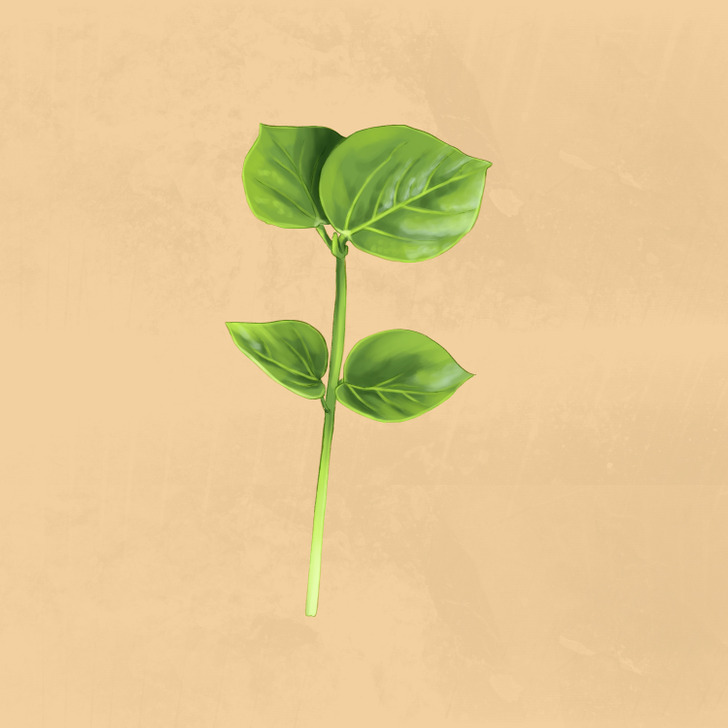What Microgreens Are, and Why They’re Good for You
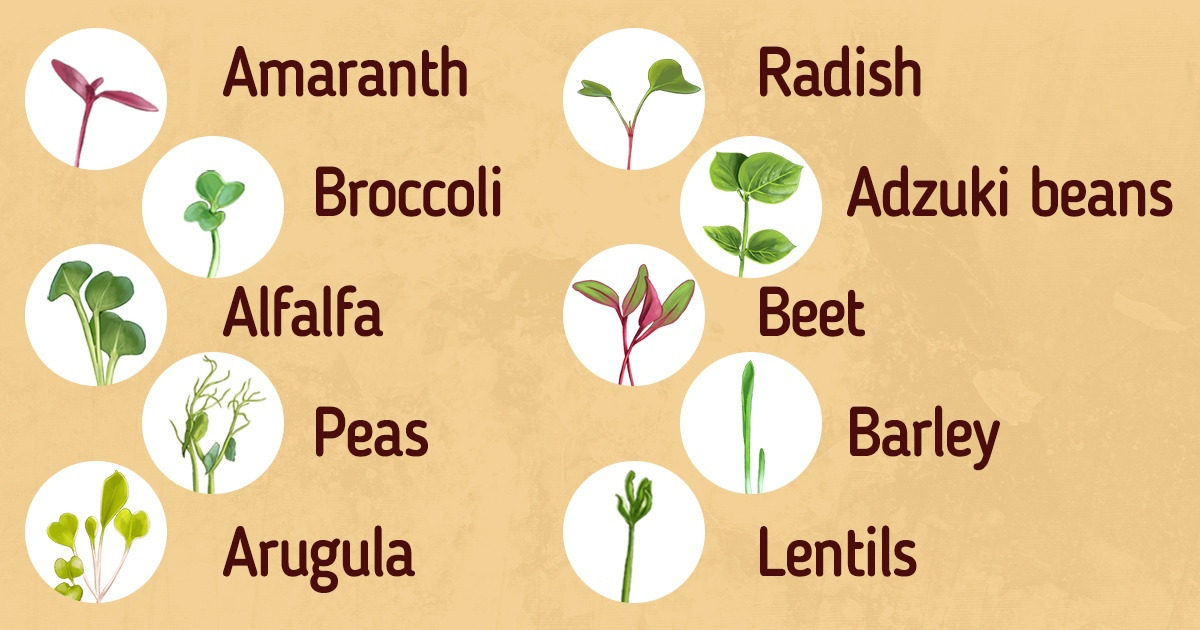
The increase in popularity of microgreens has to do with their health benefits. It’s been proven that they are a more nutritious source of food than similar adult plants.
5-Minute Crafts found out what kinds of microgreens there are and why they are good for you.
Microgreens are small versions of the plants we already know about. Young seedlings of vegetables and herbs are harvested right after the first leaves appear. Only the parts that are underground are eaten.
Most microgreens can be harvested only once and then the seeds need to be planted again. But there are 3 exceptions: peas, beans, and lentils are able to grow again if you harvest them above their bottom leaf.
The main advantage of microgreens is their wide spectrum of health benefits:
- A big source of vitamins and minerals
- Good nutritional value (better than adult plants)
- A big concentration of antioxidants
All microgreens are eaten fresh, which is why their health benefits remain intact. Because they are a good source of vitamins, microgreens have less fiber than adult plants, so they can be a good replacement.
Microgreens are very popular today, but they are not something new for chefs. They have been using these kinds of greens since the 1980s. They are added to salads and smoothies and are used for decorating meals.
On average, it takes 7-14 days for microgreens to grow from seeds. Thanks to such a fast cycle, they can be grown with minimal effort, even at home.
Even though microgreens taste great, they are not only used in the food industry. Due to a high concentration of vitamins and nutrients, they are often used in the beauty industry to make oils and ingredients for other beauty products, such as creams and shampoos.
Alfalfa
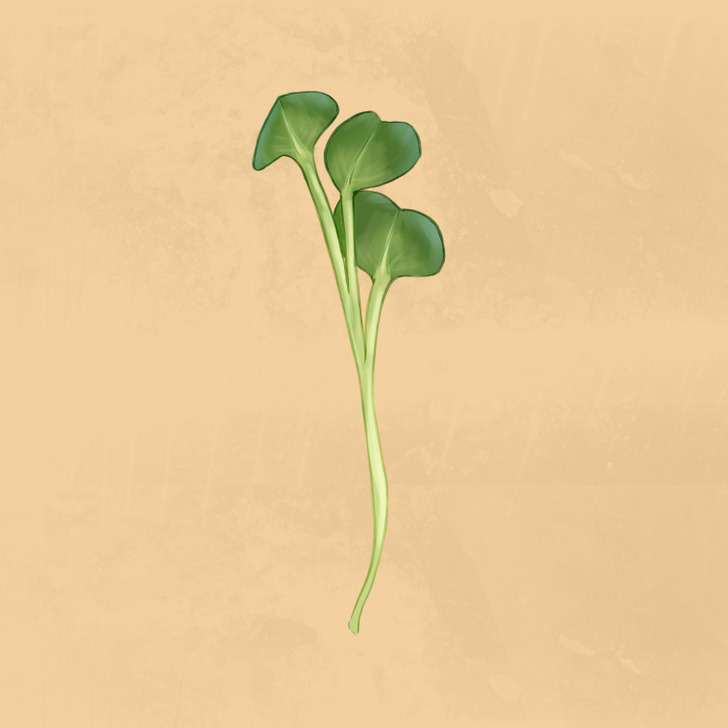
Amaranth
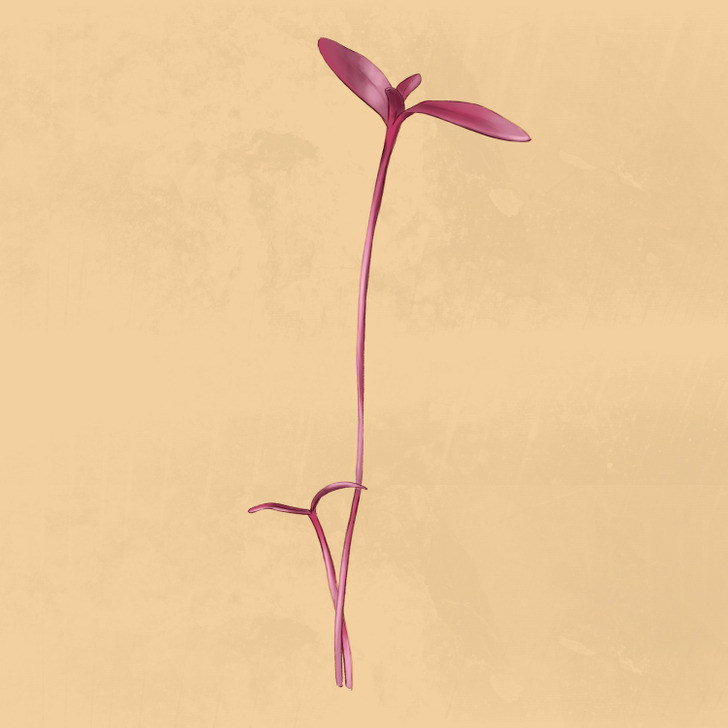
The amaranth is a microgreen that doesn’t only look like beetroot in color, but it also tastes a bit like it. It has bright stems and darker red leaves with a green shine. In 8-10 days, you can harvest amaranth rich in vitamins K, C, and phytosterols.
Peas
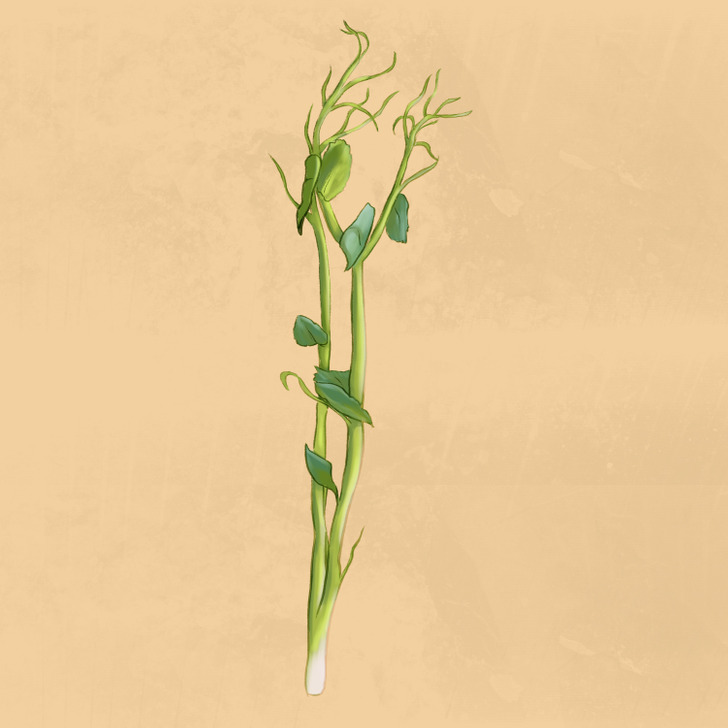
Broccoli
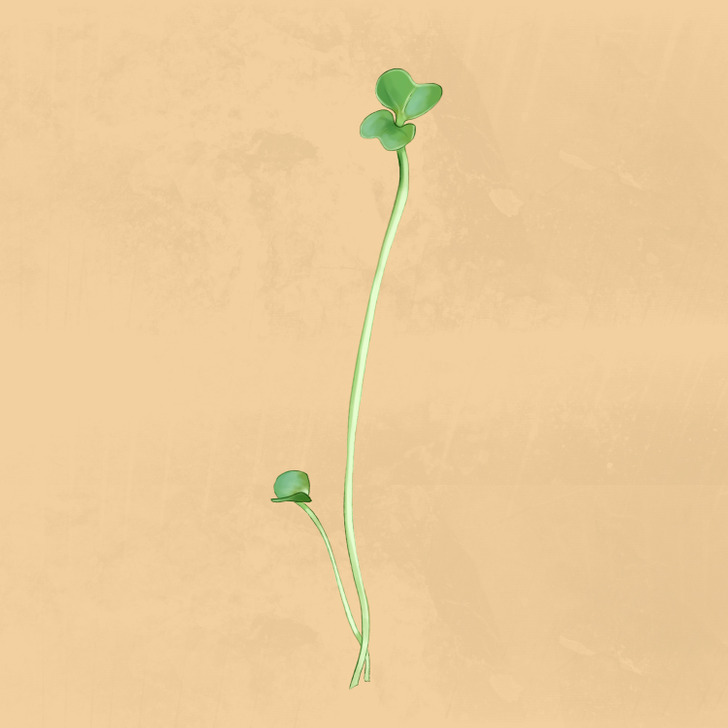
Broccoli is one of the most nutritious and fast-growing kinds of microgreens. You can harvest broccoli after 6 days. The color of its leaves are shades of green, and the stems are pinkish. The taste is a little bitter. It contains a lot of vitamins A, В, С, and К, along with protein, calcium, phosphorus, magnesium, iron, and zinc.
Arugula
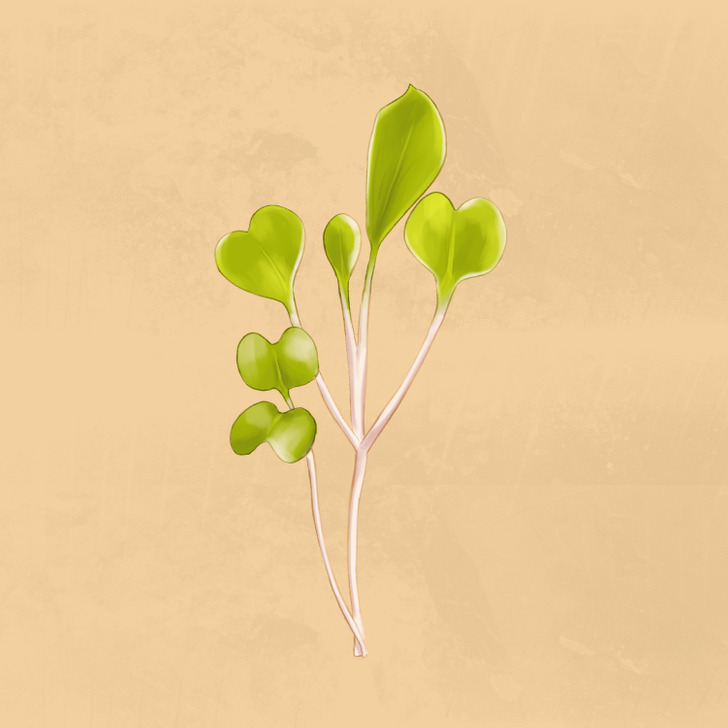
Lentil
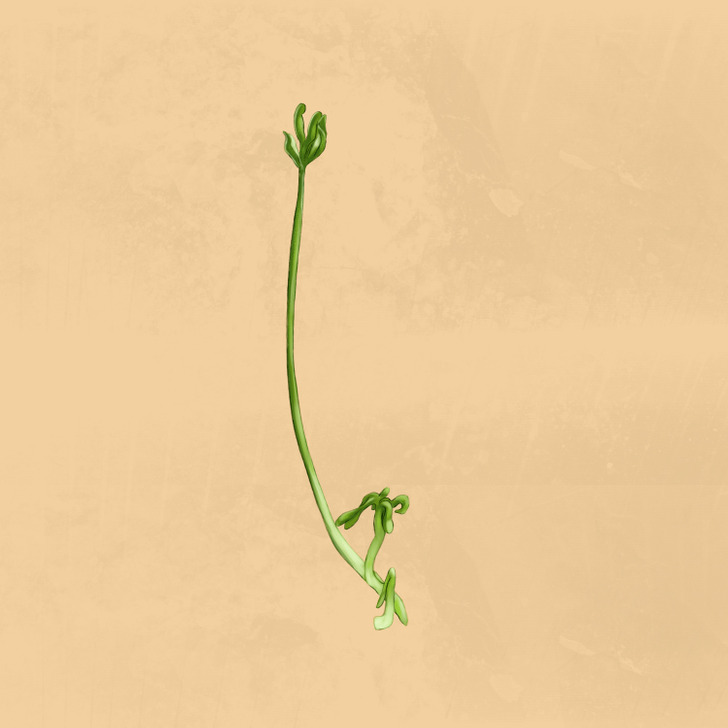
Radish
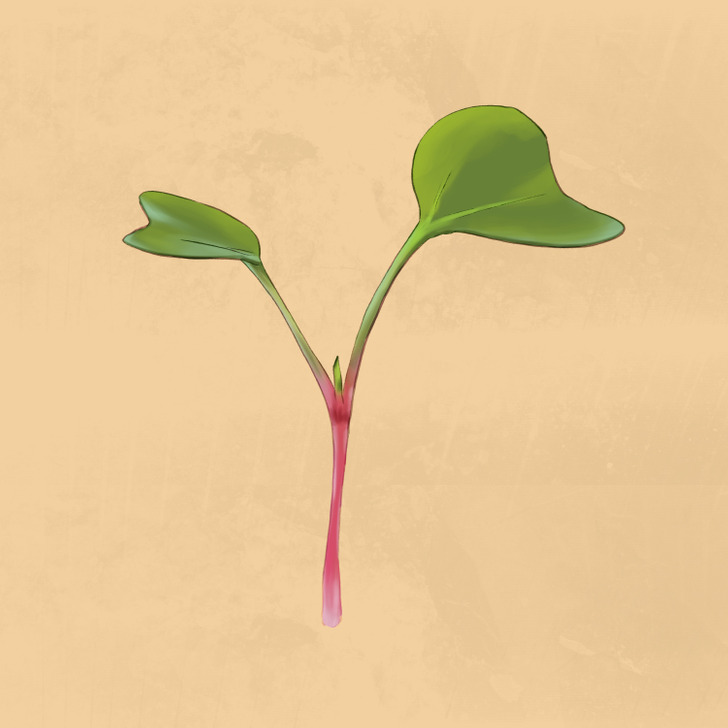
Radishes are one of the fastest-growing kinds of microgreens: you can harvest it after 6 days. It’s a great source of minerals and vitamin C. Some kinds are also very rich in vitamin E.
Beet
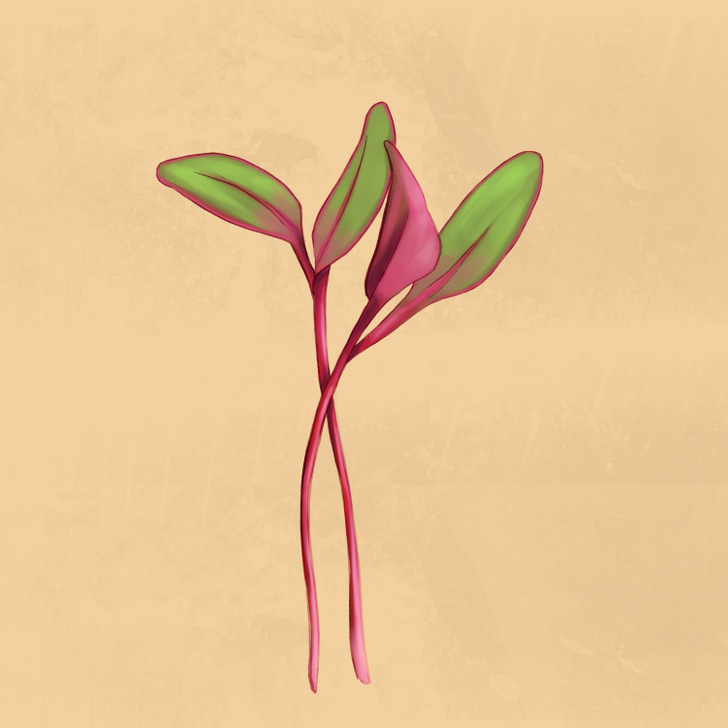
Barley
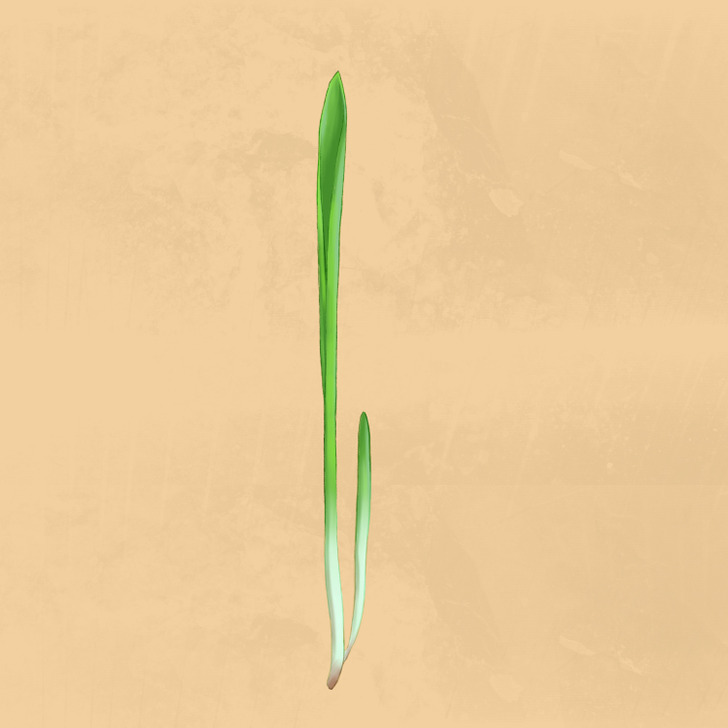
Adzuki beans
